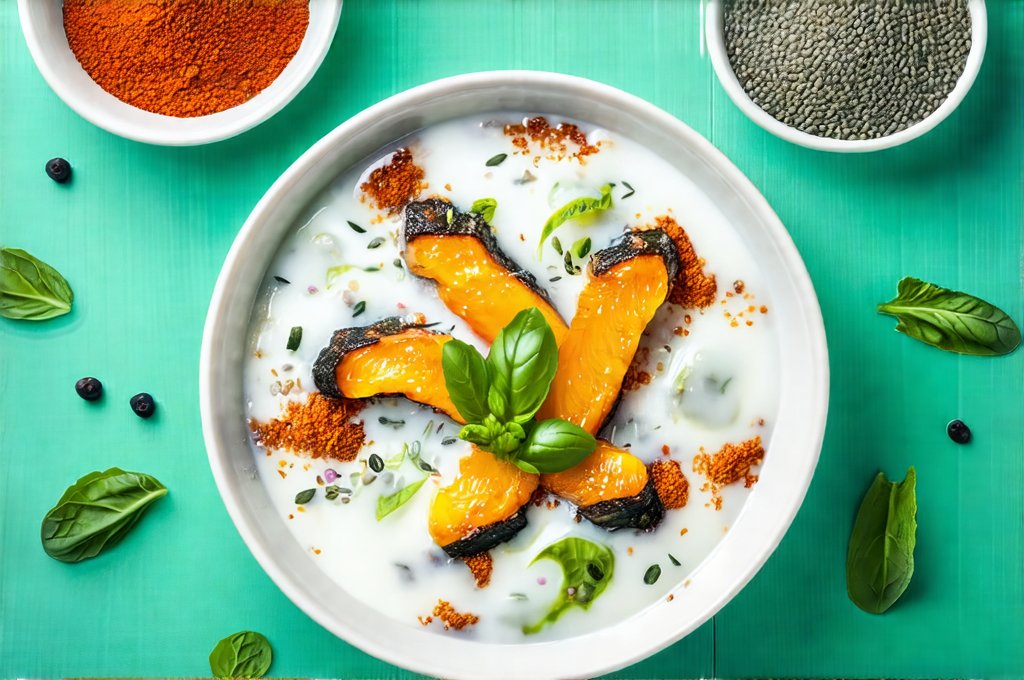Irritable Bowel Syndrome (IBS) can significantly impact daily life, often causing discomfort, bloating, and unpredictable digestive issues. Many individuals with IBS find that dietary choices play a crucial role in managing their symptoms. However, the quest for soothing meals often clashes with the desire for satisfying, flavorful food. It’s a common concern: how to eat well and avoid triggering flare-ups. This isn’t about deprivation; it’s about mindful eating and discovering recipes that nurture your gut while still bringing joy to mealtimes.
The challenge lies in identifying foods that are generally well-tolerated by those with IBS, which can vary greatly from person to person. The Low FODMAP diet is a frequently recommended approach, but it’s not necessarily the only solution. Many people benefit from simpler modifications like reducing fiber intake (temporarily), opting for smaller portions, and focusing on easily digestible ingredients. This article will explore comforting recipes specifically designed to minimize IBS triggers without sacrificing flavor or leaving you feeling heavy and sluggish. We’ll focus on building a repertoire of dishes that are gentle on your system and provide genuine nourishment. Considering a gut calm approach can be highly beneficial.
Gentle Foundations: Soothing Soups & Broths
Soups and broths are often ideal starting points for an IBS-friendly diet. They’re hydrating, easy to digest, and can be customized with ingredients that suit individual tolerances. The key is simplicity. Avoid overly complex recipes with numerous potential triggers. Clear broths, made from bone or vegetables, provide a nourishing base without the bulk of solid foods. Vegetable purees, like butternut squash or carrot soup, offer gentle fiber when tolerated in small amounts and are naturally comforting.
Consider using herbs to enhance flavor rather than relying on spices that can sometimes irritate sensitive digestive systems. Ginger is frequently well-tolerated and possesses anti-inflammatory properties. Turmeric, used sparingly, may also be beneficial. Avoid ingredients known to commonly trigger IBS symptoms, such as onions, garlic, and high-FODMAP vegetables like broccoli or cauliflower (at least initially). Focus on building a base of easily digestible proteins like chicken or fish – again, in moderation. For those with more complex needs, exploring PCOS-friendly plates can also offer insight into gentle eating habits.
A simple chicken and vegetable broth can be made with carrots, celery (in limited quantities), parsnips, and fresh herbs like thyme and parsley. Avoid bouillon cubes which often contain hidden ingredients that may cause issues. The goal is to create a nourishing liquid that provides hydration and essential nutrients without overwhelming the digestive system. This isn’t about blandness; it’s about mindful ingredient selection.
Comfort Food Reimagined: Lighter Alternatives
Many classic comfort foods can be adapted for IBS-friendly eating with relatively minor adjustments. The aim is to recreate familiar flavors and textures while minimizing potential triggers. Mashed potatoes, often a comforting staple, can be made using sweet potatoes (in moderation) or potatoes combined with a little olive oil or lactose-free milk/cream if tolerated. Avoid adding butter excessively. Gravy can be thickened with cornstarch instead of wheat flour, which is easier to digest for some.
Pasta dishes are another area ripe for modification. Gluten-free pasta alternatives made from rice or quinoa can be easier on the digestive system than traditional wheat pasta. Sauces should be kept simple; a tomato-based sauce without onions and garlic (or using garlic-infused oil – removing the actual garlic) is often well-tolerated. Avoid creamy sauces, which can exacerbate symptoms for some individuals. Portion control is vital with pasta, even gluten-free varieties.
Roast chicken with roasted vegetables like parsnips and carrots offers a satisfying meal that’s generally gentle on the gut. Avoid overly spiced rubs or marinades. The skin of the chicken should be removed if it causes issues. Remember that individual tolerances vary significantly; what works for one person may not work for another. If you struggle with finding foods to enjoy, consider high-satiety options that won’t cause discomfort.
Recipes to Soothe & Support
- Ginger Carrot Soup: This vibrant soup is easy to digest and offers a warming, comforting experience.
- Ingredients: 1 tbsp olive oil, 500g carrots (peeled and chopped), 1 inch ginger (grated), 750ml vegetable broth, salt & pepper to taste.
-
Instructions: Sauté the carrots in olive oil until softened. Add ginger and cook for another minute. Pour in vegetable broth and simmer until carrots are tender. Blend until smooth and season with salt and pepper. A swirl of coconut milk (if tolerated) can add creaminess without dairy.
-
Baked Salmon with Roasted Parsnips: This provides lean protein and gentle carbohydrates.
- Ingredients: 1 salmon fillet, 2 parsnips (peeled and chopped), 1 tbsp olive oil, herbs of your choice (dill, parsley).
-
Instructions: Preheat oven to 200°C. Toss parsnips with olive oil and roast for 20 minutes. Place salmon fillet on baking tray alongside parsnips and bake for another 12-15 minutes or until cooked through. Season with herbs.
-
Quinoa & Chicken Bowl: A light, protein-rich option that’s easy to customize.
- Ingredients: ½ cup quinoa (cooked), 100g shredded chicken breast, a handful of spinach (optional – if tolerated), a drizzle of olive oil, salt and pepper.
- Instructions: Combine cooked quinoa and shredded chicken in a bowl. Add spinach if desired. Drizzle with olive oil and season to taste. This can be adapted with other IBS-friendly vegetables like grated zucchini or carrots.
Remember that consistent monitoring is essential when introducing new foods. Keep a food diary to track what you eat and how it affects your symptoms. This will help you identify personal triggers and build a dietary plan that works for you. Don’t hesitate to consult with a registered dietitian specializing in IBS for personalized guidance and support. This information is not intended as medical advice, but rather as a starting point for exploring comforting and gut-friendly recipes. Prioritize listening to your body and adjusting your diet accordingly. Incorporating daily ritual meals into your routine can also help manage symptoms over time.




